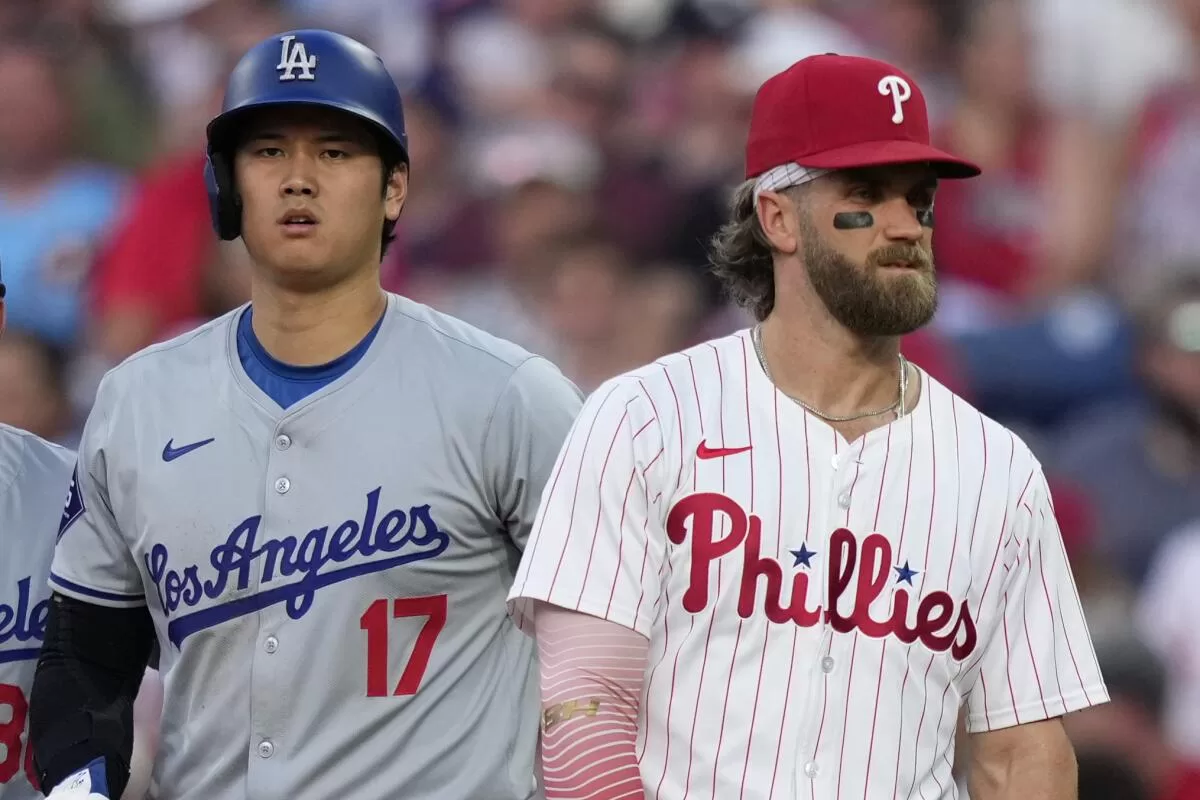ARLINGTON, Texas — Dodger Stadium. Olympic gold medal on the line. Shohei Ohtani in the batter’s box — or on the mound.
Ohtani can see it.
Why can’t Major League Baseball? Why can’t commissioner Rob Manfred?
Magic Johnson said in a recent interview that he had to convince Michael Jordan to join the Dream Team, but the Michael Jordan of baseball won’t have to be persuaded to play in the 2028 Olympics in Los Angeles.
Ohtani is already on board.
He wants to play.
“Of course,” he said in Japanese.
However, Ohtani’s participation will require MLB to take a summer break in the middle of its season and release its players to the Olympics, and Manfred has sounded reluctant about the prospect.
Speaking at Globe Life Park the day before the All-Star Game, Ohtani presented his case to make the Olympics another signature event for his sport.
“International tournaments are special, and the Olympics are also special,” Ohtani said. “In the Olympics especially, there will be more chances for people who normally don’t watch baseball to watch [baseball]. In that sense, I think it’s something that’s very important for baseball.”
Ohtani is right: Baseball would benefit from showcasing its best players on the Olympic stage.
The promotion is vital for the future of the sport.
Seriously, other than Ohtani, what other baseball player is a household name in the United States outside of the market in which he plays?
Aaron Judge, maybe?
The WBC is a delightful event, and Ohtani’s championship-deciding strikeout of Mike Trout in the most recent edition of the tournament was the best moment in baseball last year.
In this country, however, the WBC’s audience is for the most part limited to baseball fans. The reach of the Olympics is greater by several orders of magnitude.
Just look at what the Dream Team did for the NBA, both domestically and abroad.
Philadelphia Phillies first baseman Bryce Harper made a similar argument last month when his team played the New York Mets in London.
“There’s nothing more worldwide than the Olympics,” Harper told reporters. “I watch the most random sports in the Olympics because it’s the Olympics, and that’s really cool.”
Shohei Ohtani, left, and Philadelphia Phillies star Bryce Harper both are fans of the Olympics.
(Matt Slocum / Associated Press)
MLB promotes the WBC, and even encourages its players to participate, because it runs the tournament. The league controls the revenues. MLB would have no such jurisdiction over an Olympic tournament.
Manfred won’t admit to that, of course, and has blamed “logistics” as a reason for MLB teams to not release its players. Never mind that a six- to eight-team Olympic tournament could be staged in five or six days in what would typically be MLB’s All-Star week. Never mind that players would be in midseason form instead of preseason form as they are for the WBC.
An agreement to release players probably would have to be collectively bargained, meaning the subject could be debated until the next collective-bargaining agreement is ratified. The current CBA expires after the 2026 season.
In previous Olympics, the United States has fielded teams consisting of college players and minor leaguers. Interest was mild.
MLB has a chance to do something groundbreaking.
Manfred just has to recognize that by relinquishing control for a week or so in the middle of the 2028 season, the league and its owners can come out ahead.
Consider how Ohtani finished answering the question he fielded Monday about wanting to play in the Olympics.
“Personally, I also have feelings of wanting to play,” he said. This was the child in him who was talking — a boy in rural Japan who was inspired by watching Japan win the WBC.
Now, multiply that effect by 10, by 100, by 1,000 even.
That’s what happened at the Barcelona Games in 1992. Children around the world saw Michael Jordan and wanted to become him. Basketball’s global reach expanded. The NBA now has players from all over the world.
Baseball has the chance to also become less insular. This is a no-brainer, sort of like how it was for the Dodgers when Ohtani proposed they defer $680 million of his $700-million contract. Dodgers president of baseball operations Andrew Friedman was smart enough then to recognize Ohtani had made him an offer he couldn’t refuse. Now, it’s Manfred’s turn to realize Ohtani has presented him with an opportunity he must take.
